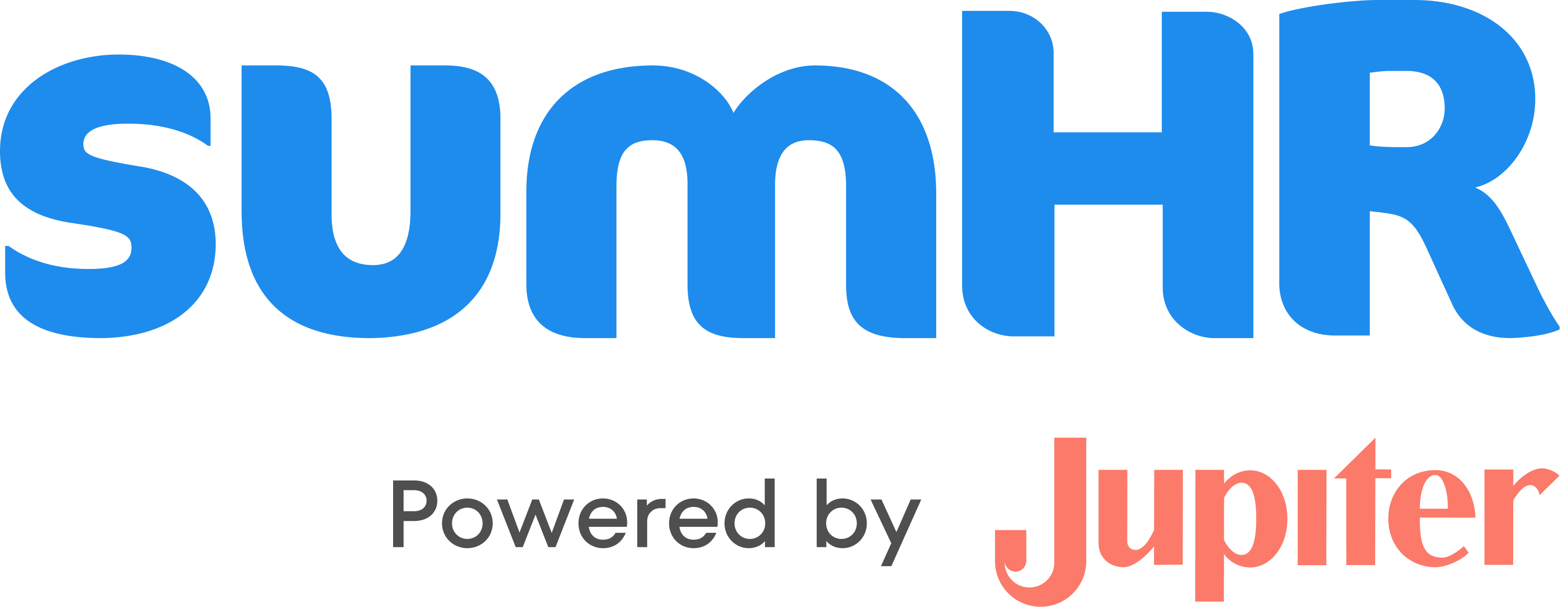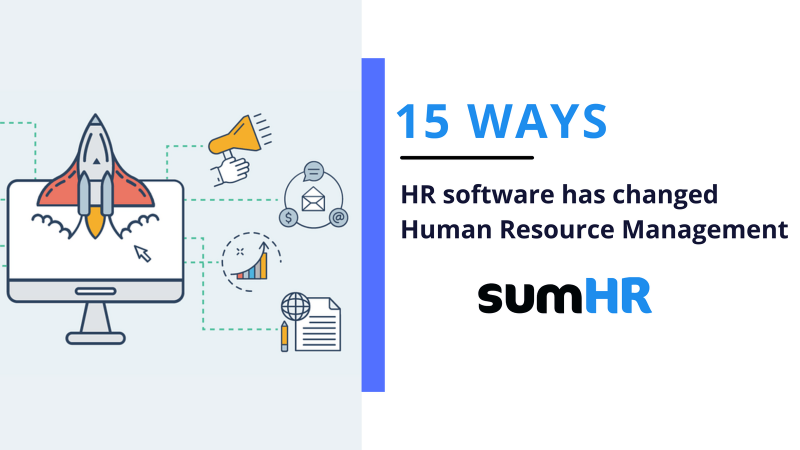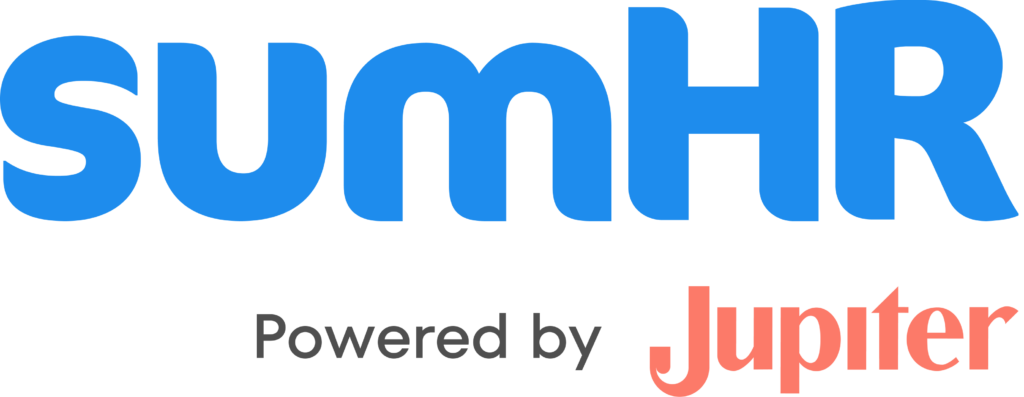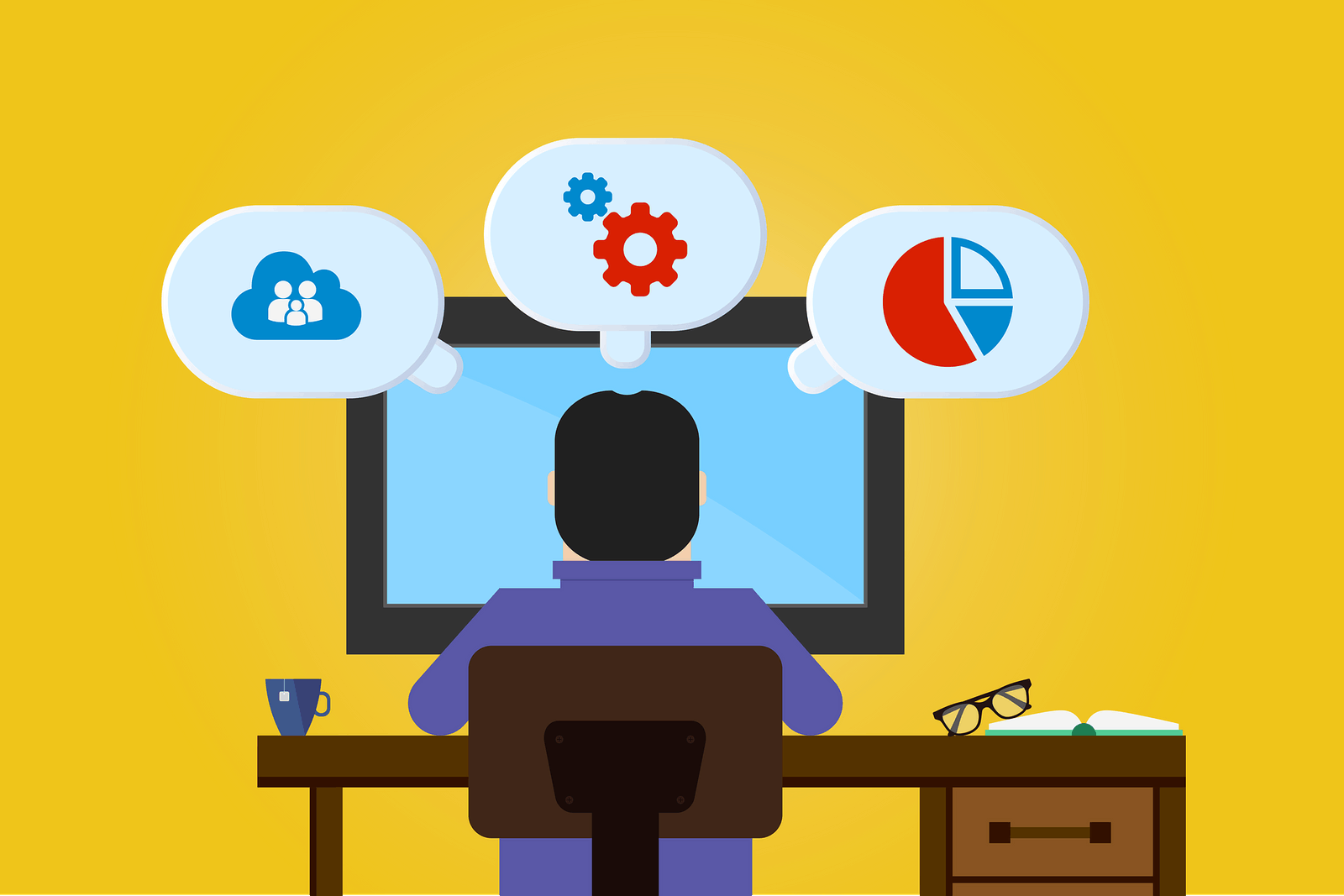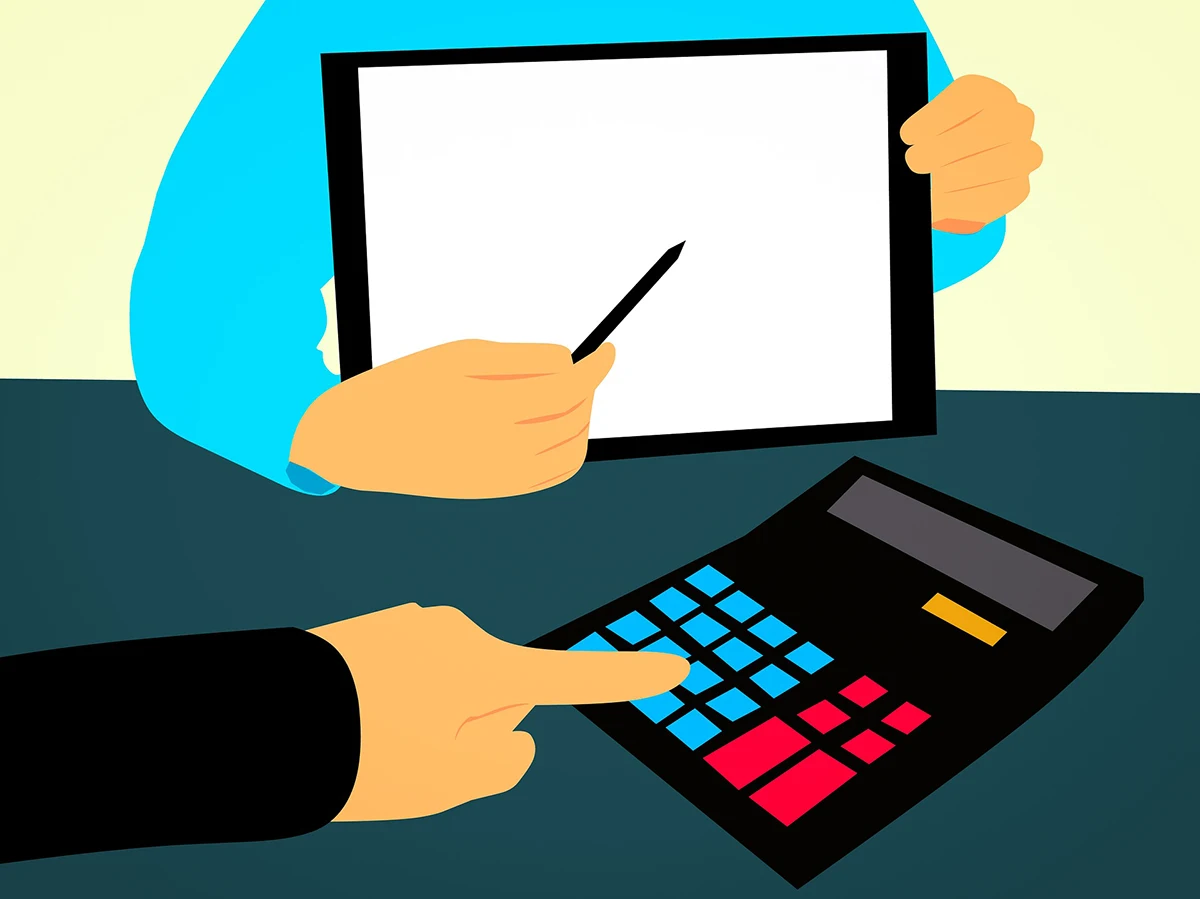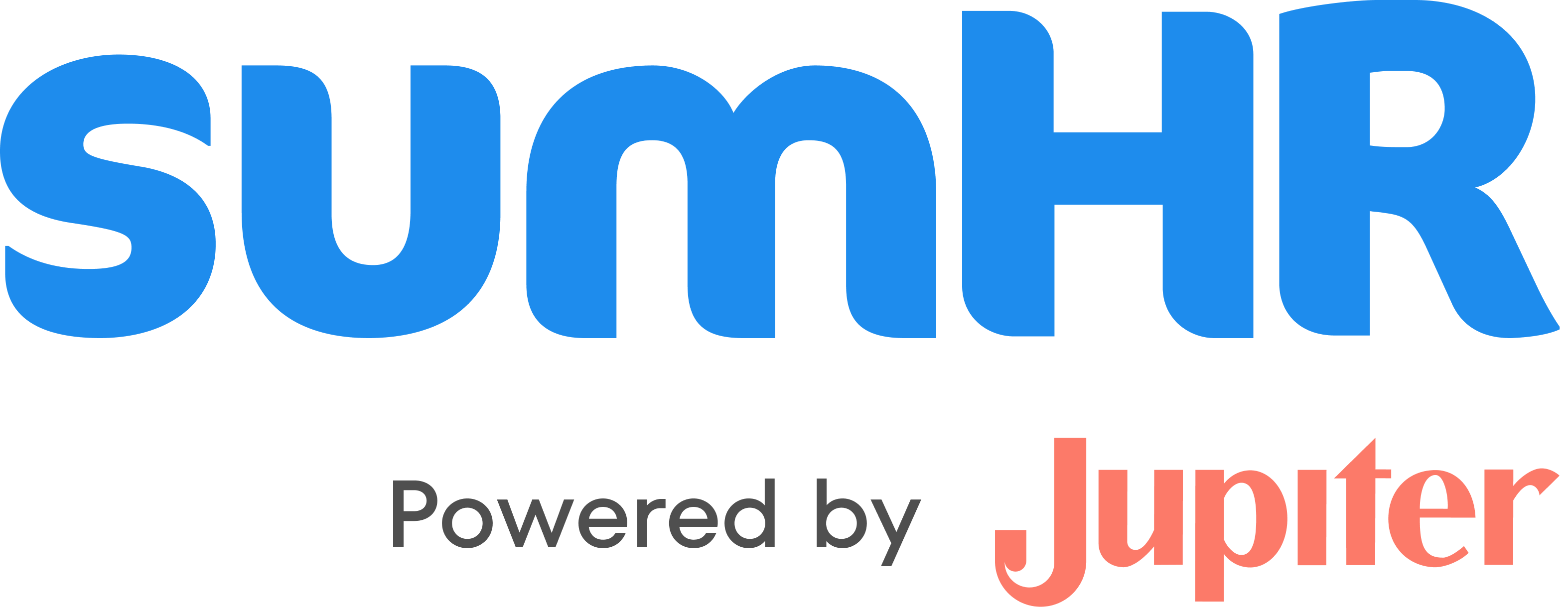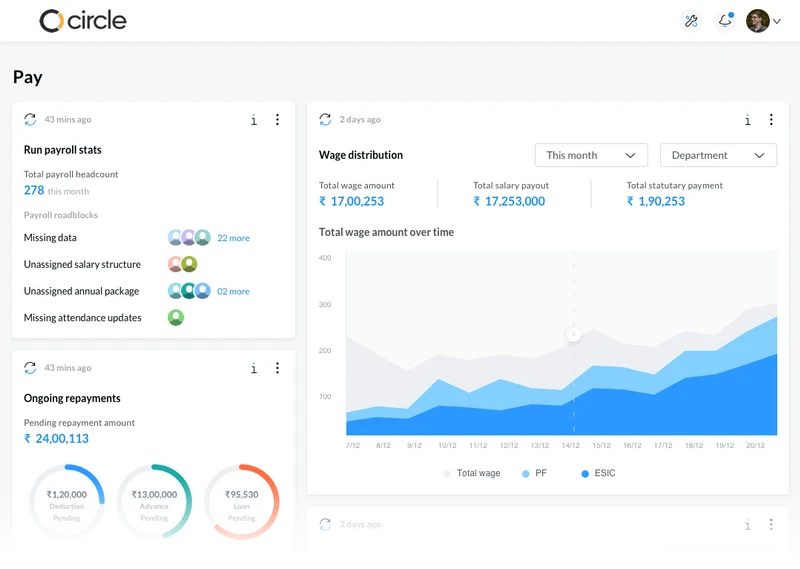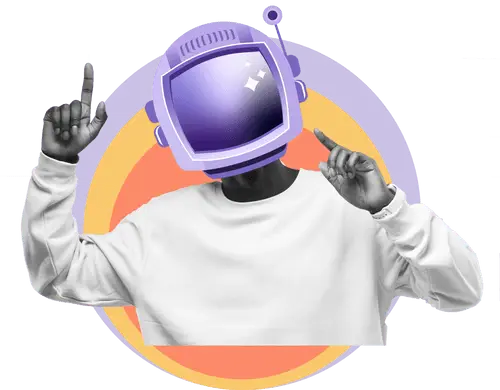Organizations have been increasingly using technologies for outsourcing several departments in order to achieve their end goals. But why do they do so?
It helps the people in the organization to focus on their core activities!
Is your company riding on waves of technology too? We are sure of it!
You may wonder how HR tech can help human resources management?
With cloud technology advances, companies are often seeking software that could enhance productivity and increase the accuracy of human resources activities.
Hence, eliminate the risk of human errors.
Technology has allowed organizations to enable end-to-end automation of the HR program of companies.
But what benefits can be derived by using HR management software for your businesses?
The benefits of HR software have resulted in increased performance in several departments, which include recruitment process, interview, documentation, onboarding, payroll, attendance management, training and learning, compliance, streaming workflow, and relieving activities.
Yes, that’s the ease of using HR software as it streamlines all the departments of your company.
Does it affect the workers’ side too?
It’s a huge YES!
It has resulted in improving employee satisfaction with Cloud HR Software, analytics, and increased transparency of staff performance.
These aspects emphasize the importance of using HR software and its functions!
Let’s look into several ways; how human resources software has changed human resource management.

1. Hiring
Isn’t finding the right candidate for a job vacancy the most difficult job?
The very first step of the HR process is to identify the best way to hire the right employee that fits the organization’s culture and organizational environment.
One might wonder how human resource management has changed hiring over the years?
With the help of keywords, businesses have been able to create the job description of a vacancy that could be filtered or matched to the application of candidates.
Also, by categorizing the candidates on the basis of keywords, businesses can find the perfect applicant and reduce time spent on manually scanning all employees.
Doesn’t that seem great?
A survey suggested that online recruiting can help in cutting the recruitment cycle by 25%. Hence, saving around 95% of costs.
2. Recruitment and interview
One might wonder how technology has improved the efficiency of HR Management?
Recruitment requires employers to process a huge amount of data and schedule, collate interviews and provide feedback for candidates to improve while sending offer letters to accepted candidates.
Larger companies often take months to successfully evaluate the candidates, and the management often finds themselves in a fix or miscommunications.
So what shall we do in such scenarios?
Having cloud-based HR software has helped track the progress of each candidate in an efficient manner.
Businesses often use LinkedIn nowadays as it improves their recruiting process.
3. Documentation and onboarding process
How often have you made mistakes while filing your documentation while onboarding?
Or taken a long time to find out details about an employee?
Fret not!
Numerous companies have successfully used human resource software, often cloud HR software, to securely collate and store data while onboarding in a systematic manner.
This has not only reduced the risk of misplacing information but also allowed the businesses to create a valuable asset of data that can aid the learning and growth of business and provide reports on the growth of co-workers.
But how much time do HR managers take to input data manually into the systems?
Although the amount of time that HR managers are working on manual data input has decreased, these managers still spend up to 50% of their time on manual tasks.
Considering this in mind, HR software companies have a new goal in front of them for the year 2021.
4. Payroll inputs
Do you want to avoid calculating several different calculations for employees as well as the business? This would include the cost to the company, tax liabilities, and penalties.
I have a piece of great news for the payroll team!
Payroll Inputs!
How has this changed due to technology solutions?
New HR systems provide the provision to combine and automate the payroll system through e-payroll by efficiently calculating the salaries along with PF amount against the designation of employees.
At the same time, HR systems can be updated on a timely basis by the payroll team with new policies, tax laws, and deadlines to save the organization from penalties and smooth functioning of the business.
5. Attendance and leave management
Traditional ways often required you to calculate the working hours of each employee and attendance on spreadsheets, which was a tedious task, especially during the beginning of the new month.
Sounds challenging and nerve-wracking already!
What has been a major change in this HR process since then?
Cloud HR platforms allow you to calculate every worker’s overtime or extra days, stipulated working hours. Also, help the employee to keep a check on their attendance.
But how is it helpful?
These solutions can be extremely helpful for employees who are paid by the hour or often put in extra time beyond office hours for the business.
6. Employee data management
How can HR professionals manage team worker records in an integrated and efficient manner?
HR professionals have struggled to retrieve all information about a person.
This ranges from their personal information, performance, team, to department, current projects, and more.
Also, several web-based HR systems have combined HR functions at one place to preview employee records, top skills, employee assessments and achievements, and feedback of colleagues.
Having all data in one place means you streamline your work and produce effective results! Great right?
7. Streamlining workflow
How can managers use online HR software to manage the workflow of an organization?
HR managers can use HR systems for innumerable reasons!
This includes maintaining the team sizes of different projects, teams’ performance management, and the number of functions.
Or tasks undertaken by one worker at any given point of time, updates about their work, and feedback.
The following information can be utilized for managers to be unbiased when the department wants to promote a worker, give an increment, evaluate the performance, improve employee engagement and the workplace culture.
HRM can also enable us to understand how a worker feels about his/her performance.
What an interesting insight?!
According to a study, nearly 62% of millennials have felt blindsided by a performance review and 74% feel “in dark” about what their peers and managers think of their performance.
8. Employees’ terms and policies
Successful businesses often have FAQs on their websites to help answer the common question of customers.
Ever wonder how technology can be integrated with HR to address employee’s concerns?
Digital technology has empowered the employees to have access to HR portals to review their responsibilities, compensation, salary, rules, individual benefits, and eligibility criteria for rewards.
Having all information accessible allows the employee to keep track of his or her performance in detail and build credibility with the employer.
They can often use these portals to understand and converse with their managers on how they can increase their contribution and improve their performance.
This would allow them to gain a direction within the company and make them feel more confident about their efforts and work.
Did you know? 85% of Millennials would feel more confident in their current position if they had more-frequent performance conversations with their managers.
But how can cloud HR software further enhance employee experience?
Cloud HR software can also allow employees to know about the labor laws applicable to their designation and pay scale and assist them in managing their leaves, tax returns remotely and at any given point in time.
This would also allow the HR department to focus more on growing the business.

9. Team building
Advances in digital technology have crossed several boundaries, especially in the field of HR.
While you might ask, “Is HR going away?”
The truth is that technology empowers HR than be a threat to it.
HR managers can use data analytics to assess how teams have been performing and which teams have been working effectively and which are not.
Using the data, the HR department can strategize and develop exercises to build stronger teams. It can also understand the core issues of bad performance and work towards improving team working skills or employee morale.
So, how has HR been in handling the team with data analytics?
According to a 2015 Deloitte report, less than 9% of respondents felt their organizations had a strong team that could handle HR data analysis within HR. Predictive analysis is here to change the statistics and become a revolution in the field of HR.
But how will this HRM transform in the future?
Let me give you an instance!
HRM systems can see further advancement in the future in several aspects of the HR functions.
We could expect the major implementation of artificial intelligence in the form of predictive analysis. 32% of companies say they are ready to begin using predictive analytics.
In regards to team building, AI can analyze data across the vast majority of employees, teams, or organizations to predict performance and how to enhance their skills or contribution.
It can also notify companies if the employees are at risk of disappointment or declining performance before it is too late.
Yes, the world of human resource management and its systems is slowly and steadily changing! Exciting right?
10. Workforce management
You may wonder, does HR software help in understanding future professionals or employees’ requirements?
Evaluating the present situation, companies can plan for their future workforce requirement.
This will allow managers to improve their planning and take a strategic approach towards the organization’s future needs by aligning HR with the company’s objective.
Also, this would also allow businesses to invest in training and development to make future leaders and stronger teams.
Hence, strengthening human capital management and related decisions to it. HR software helps match the right team with the right project that matches their skill sets.
Moreover, the software helps to streamline all their activities so that they can focus on major tasks, increasing their productivity.
11. Employee retention and employee engagement
Retention of Talent has been key for success for several companies.
It is said that engaged employees are able to embrace change and see 2x better engagement and improved performance.
HR software that focuses on employee engagement helps the department in enhancing its engagement activities and the overall culture of the company by helping managers understand what their employees are doing well and where else can they improve or assist.
This feedback acts as a great form of motivation so they can strive to do better in their own capacity.
It helps to offer various community-driven activities that focus on enhancing culture, motivation levels, and overall happiness, which can boost employee retention.
12. Analysis and reporting
How has HR software helped with the analysis and reporting aspect of HR?
HR software enables companies to gain real-time updates and analysis of employees’ performance. This would be extremely helpful for businesses when there is a change brought in the organization’s culture.
Having real-time updates will allow the HR manager to see the impact on individuals and bring to the attention of the board any advantages, challenges, and the extent to which new methods have been successful.
13. Increase in trust and talent acquisition with the help of tech
While technology has enabled teleworking, it has also allowed employers to showcase trust in their employees to work efficiently and with high productivity even after being away from the office.
At the same time, employers can access independent workers or employees across the world with the help of technology.
14. Performance management
How have HR managers benefited from assessing the performance of employees through HR software?
As the performance appraisal team has all past records data integrated into one place and has machine learning at their disposal, employees can be provided bespoke key performance indicators (KPIs), thereby replacing the old method of general KPIs for everyone at a similar position.
15. Improved efficiency
So can HR systems really reduce the workload of the human resources department and increase efficiency?
No one wants to keep doing the mundane paperwork and administrative tasks all the time. I believe all HR managers would agree with me on that.
HR software can reduce the paperwork without having the risk of losing the data stored. Such portals can securely store data on the cloud and create backups without any worry about a distortion of data.
Which way to go then?
The industry is booming and provides custom made solutions to every organization, small, big, global, or local.
While this could be cost-effective for small and medium enterprises, larger companies can also improve employee management with integrated one-stop solutions provided.
Interestingly, companies can often transfer certain aspects of HR to software, if not all, depending on their needs and budget.
Such software provides a custom-made solution to your business. These also offer an end-to-end solution to the whole HR system with complete ease.
A convenient and easy-to-use software is just what your HR team needs.
This will make your business take the right step towards embracing digital HR technology!
Frequently Asked Questions (FAQs)
1. What is HR software?
HR Software covers an array of functionalities such as administration activities of HR, recruitment, learning and development, performance management, and employee relationship, to name a few. Depending on the software one opts for, these functionalities will differ.
Read more about HR Software here
2. Why should I use technology for my HR department?
Usage of technology streamlines HR processes and reduces administrative tasks and activities while reducing compliance costs and errors. You can also improve decision making with real-time metrics when you use HR tech.
3. What are the different HR software types in the market?
One can find a diverse range of HR software in the market. They are:
- Human Resource Information Systems (HRIS),
- Human Resource Management System (HRMS),
- Payroll software,
- Application Tracking System (ATS)
4. What benefits can I expect from the software?
Software that offers cloud-based HR solutions helps organizations store all their data and important information in a centralized location. They offer customizable interfaces that cater specifically to complex HR functionalities, streamlining HR activities.
Read More about benefits of HR Software.
5. What should I know before investing in HR software?
You must answer some basic facets before investing in HR software! They are as follows:
- Which area of expertise should the software focus on?
- What is the size of your organization?
- What features should the HR software focus on?
- Will it help in growing the business or the HR department?
When looking for software, do not hesitate to ask for free demonstrations, ask more questions about the software’s functionalities and what kind of customer care one can expect.
If you’re still confused? Here is a link to take a Free Demo for sumHR
